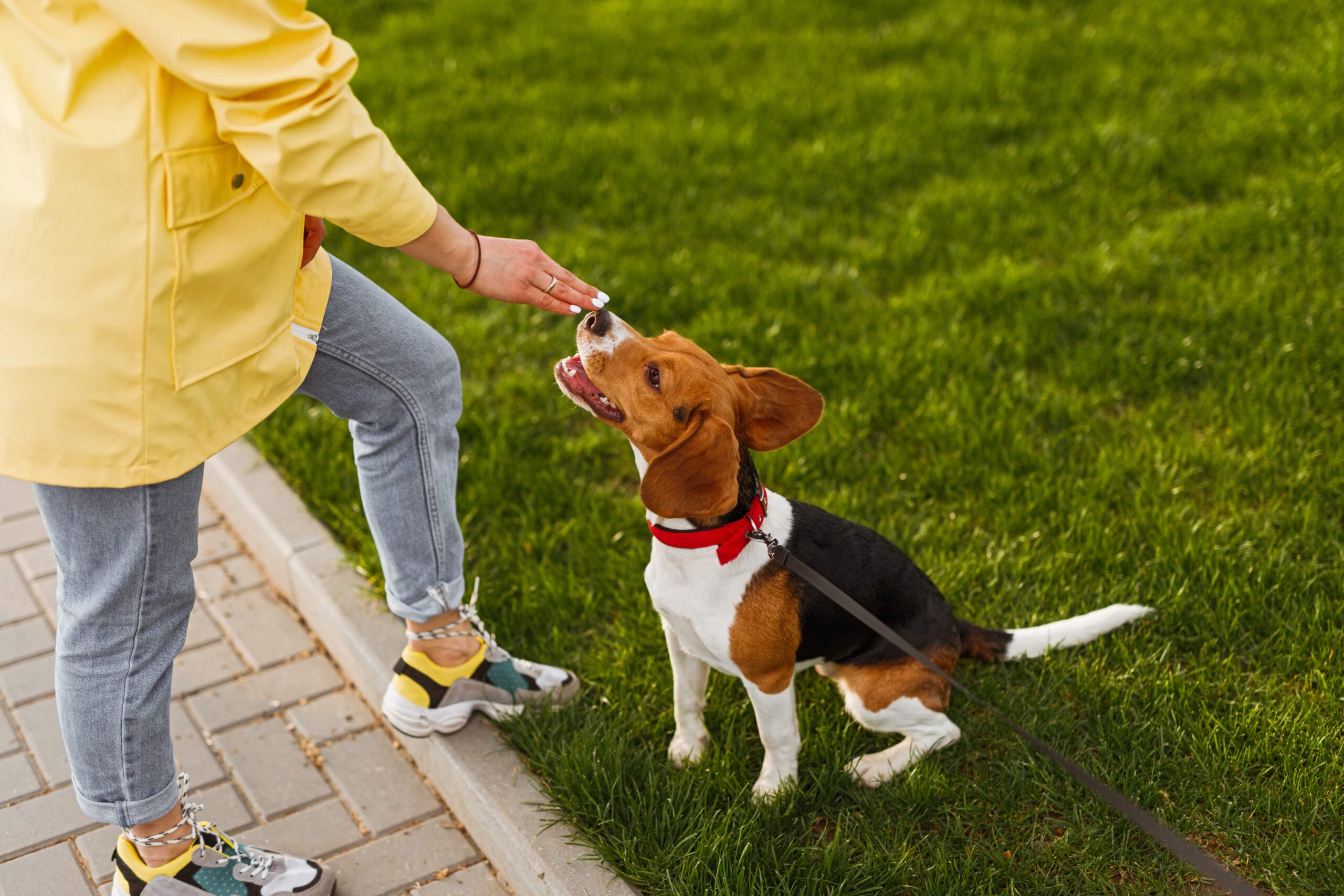Let’s not forget to thank our dogs for all the benefits they bring us—especially through the challenges of COVID-19.
My friend, Jan, has spent the entire pandemic in lockdown in San Francisco, unable to touch another human being. It’s hard to imagine how difficult that must be. And yet she’s doing OK. One big reason: her dog, Maisie.
“This cottage would feel kind of bereft of life without Maisie padding around,” says Jan.
I’m sure Jan is not alone in feeling happy to have a dog. Many of us are relying more on our pets for comfort while we face the uncertainty of the pandemic—even those of us who have human roommates to keep us company, too. Research suggests that there’s something about our dogs that makes us feel less lonely and anxious, and can even keep us healthier.
What is that something? It’s hard to put a finger on, but hormones may play a role. Petting a dog has been shown to reduce cortisol (the stress hormone), for example, and caring for a dog releases oxytocin (the bonding hormone that calms us and increases our trust in others).
Here are some of the science-backed ways that our dogs can help us cope with difficult circumstances and stay well.
1. Dogs stave off loneliness
Many of us are feeling a bit lonelier than usual these days; sheltering-in-place and keeping our distance from others is hard for everyone, including introverts. Being without human touch is particularly difficult: People who are touch-deprived tend to feel more depressed, experience more pain, and even have poorer immunity. But having a pet around (including dogs or their cat rivals) can help prevent loneliness.
“I’m hugely grateful that I’ve had Maisie as my eight-pound, fluff-ball quarantine buddy,” says Jan. “She keeps me company whether I’m reading or gardening, and cracks me up regularly with her episodes of doggy silliness.”
Though the benefits of having a pet have been studied more among the elderly (who often have limited social contact), they likely apply to many more of us during COVID-19. After all, we all have less social contact than we’d normally have right now, and that’s got to be hard on our psyches.
Why do dogs help us with loneliness? It’s probably not an accident that dogs are often called “man’s best friend.” Many people feel that dogs are like family members (but without the baggage), providing unconditional love and easy companionship. Plus, many of us have the sense that our dog resonates with us emotionally—a notion that some science supports. We’re bound to feel less isolated with a soft, understanding, loving being around.
2. Dogs reduce stress and anxiety
Many of us have been super stressed and anxious during the pandemic. We don’t know when we will be able to move about freely again, our jobs may be compromised, and we’re worried about contracting the virus or passing it on to others. We also can’t do many of the things that usually help us manage stress better—like going to the gym or having dinner with a group of friends.
Luckily, dogs can help, as many studies have shown and experts attest. In one study, 48 participants were given a stress test where they had to do public speaking and then perform difficult calculations while unfriendly observers watched them. The participants were randomly assigned to have either a friend, a dog they didn’t know, or no one accompany them before and during the test. Their cortisol levels and heart rates were measured before, just after, and 30 minutes after the test, and they filled out questionnaires about their anxiety.
